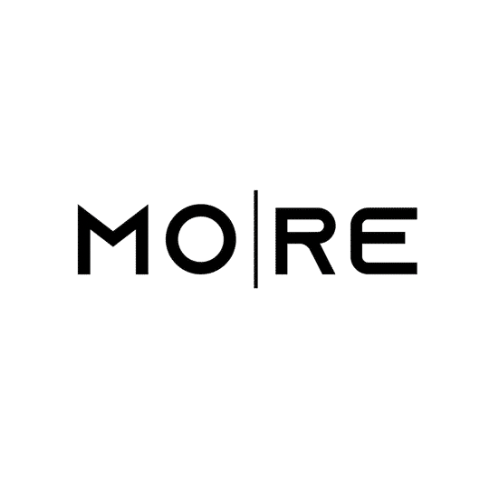How would you build your own training program? Some tips!

Welcome to today everyone!
Today we wanted to introduce you to what we think are the main components of a successful Strength and Conditioning program! Now this will seem like it is aimed at athletes, which is sort of true, but it is also information everyone should have access to! Training like an athlete doesn't have to be exclusive to Zlatan Ibrahimovic or Megan Rapinoe! In fact, the more of these segments you implement, the more you may come to enjoy your training and your results!
So today we will keep it simple, and we will divide the sections for a successful program into 7 subjects and do some bullet points of overall information. If you do not know what it means, don't worry about it! We will be explaining and expanding on these segments in future blog posts. In fact, if there is one you really cant wait to read, send us a DM to our Instagram and we will make sure we get to that topic asap!
Remember, you CAN pick and choose which of these you do. The section titled Skill Development is mostly aimed at people that need to be good at kicking a ball, throwing a disk, technique on hurdles etc. With that said, if you're a social athlete or someone who enjoys doing something, by all means incorporate the development of said skill into your own training program!
So here are the magic 7
NUTRITION · CONDITIONING · SPEED & QUICKNESS TRAINING · SKILL DEVELOPMENT · FLEXIBILITY · MUSCULAR FITNESS · REST
Nutrition
- More fraud exists in the area of nutrition than in any other segment of the fitness industry.
- In most cases ‘athletes’ are not reliable sources for nutrition information.
- Testimony is an opinion not based upon facts or scientific research.
- Supplements are not more effective than the food you buy at the supermarket.
- Carbohydrates are the best source of energy.
- Only 25% of your daily calories should come from fat; exceptions if a goal requires it.
- Vitamins do not provide energy.
- A 1%-2% drop in body weight due to water loss can cause a 15% decrease in performance.
- Sauna and rubber sweat suit cause you to sweat and lose water, not fat.
- Spot reduction is impossible (burning belly fat, chest fat etc).
- There are nine calories in one gram of fat and only 4 in one gram of carbohydrates.
- The body can eat most things, in moderation.
Conditioning
- The aerobic system draws its energy from oxygen.
- The anaerobic system draws its energy from ATP and glycogen.
- Sustained aerobic exercise most effectively develops the aerobic system.
- Interval training most effectively develops the anaerobic system.
- Your heart rate is key to your training.
- Your aerobic training zone is between 70%-85% of your max heart rate. MaxHR = 220-age
- Time and intensity and quality of exercises is more important than distance covered or quantity of exercise.
- While performing interval training adopt a rest period of 2 1/2 - 4 times the amount of work your interval lasted.
Speed and Quickness training
- Sport/Activity speed is key to your success, not straight line track speed.
- Speed and quickness are abilities that you inherit from your genetic pool.
- You cant develop more speed than your genetic potential will allow.
- Increases in speed are often obtained in spite of the training regimen employed.
- There are no magical potions or gadgets to increase speed.
- The items that have the most impact on speed are
- STANCE
- START RUNNING
- TECHNIQUE.
- An explosive start requires several coordinated actions to occur rapidly and simultaneously.
- You don't get speed through the air, you get it through the ground.
- Eliminate the vertical component and you'll run faster.
- you must practice running fast. (Squatting will not translate to running faster!)
Skill Development
- The execution of a skill is a very sophisticated neurological process.
- Skills are very specific.
- High skill levels are hard to develop.
- Do not confuse skills and abilities. (Throwing a ball through a hoop vs jumping high)
- There are three types of transfer (positive, negative, neutral).
- Add some resistance to a skill and it becomes a new skill.
- Add enough resistance to a skill and it becomes and exercise.
- Do not attempt to mimic a skill in the weight room.
Flexibility
- Do not bounce
- Stretch statically (hold the stretched position without bouncing)
- Place the muscle into position you feel mild stretch
- Hold position for 10-30 seconds or 6 deep breaths
- Accelerated breathing and a burning sensation are signs of over stretching
- Stretch to become more flexible, not to prevent an injury.
- Stretching is not a warm up.
- The movements you perform in your discipline will develop the range of motion of the muscles used to perform those activities.
- Select a wide range of exercises/stretches.
Muscular Strength and Fitness
- Your potential to gain strength and muscular body weight is inherited.
- The key to maximum gains is not what equipment you use but how you use the equipment.
- The foundation to all strength programs is the rep.
- Raise the weight at a speed that forces the muscles to lift the weight.
- Allow more time to lower the weight.
- Do not waste time and energy performing non productive exercise.
- Use as much weight as you can raise and lower properly.
- It is the quality of the exercise that produces results, not the quantity.
- You must perform a wide range of exercises to develop each major muscle group.
These next ones are mainly aimed at team sport athletes with a defined season of play
- If you are a baseball player/football player/runner/etc remember you are not a body builder, weightlifter or track athlete, so focus on function.
- In a contact sport setting, the muscles of your neck must be your number one priority.
- The most important period of the year to work your hardest and try to maintain maximum strength is during the season.
Rest
- The key to maximum gains is the proper amount of quality exercise and adequate rest.
- Too much rest results in lower fitness levels.
- Not enough rest prevents full recovery.
- Find out how little exercise you can perform to stimulate the best gains.
Thank you guys for reading and if you feel a bit confused regarding some of the statements, that's OK! We have purposefully made this into a list so as to give you the guidelines and pique your curiosity. Here at MO|RE we want to educate as well as inspire, so we will naturally be expanding these condensed information blocks into a more fluid form of information presentation in upcoming blog posts!





